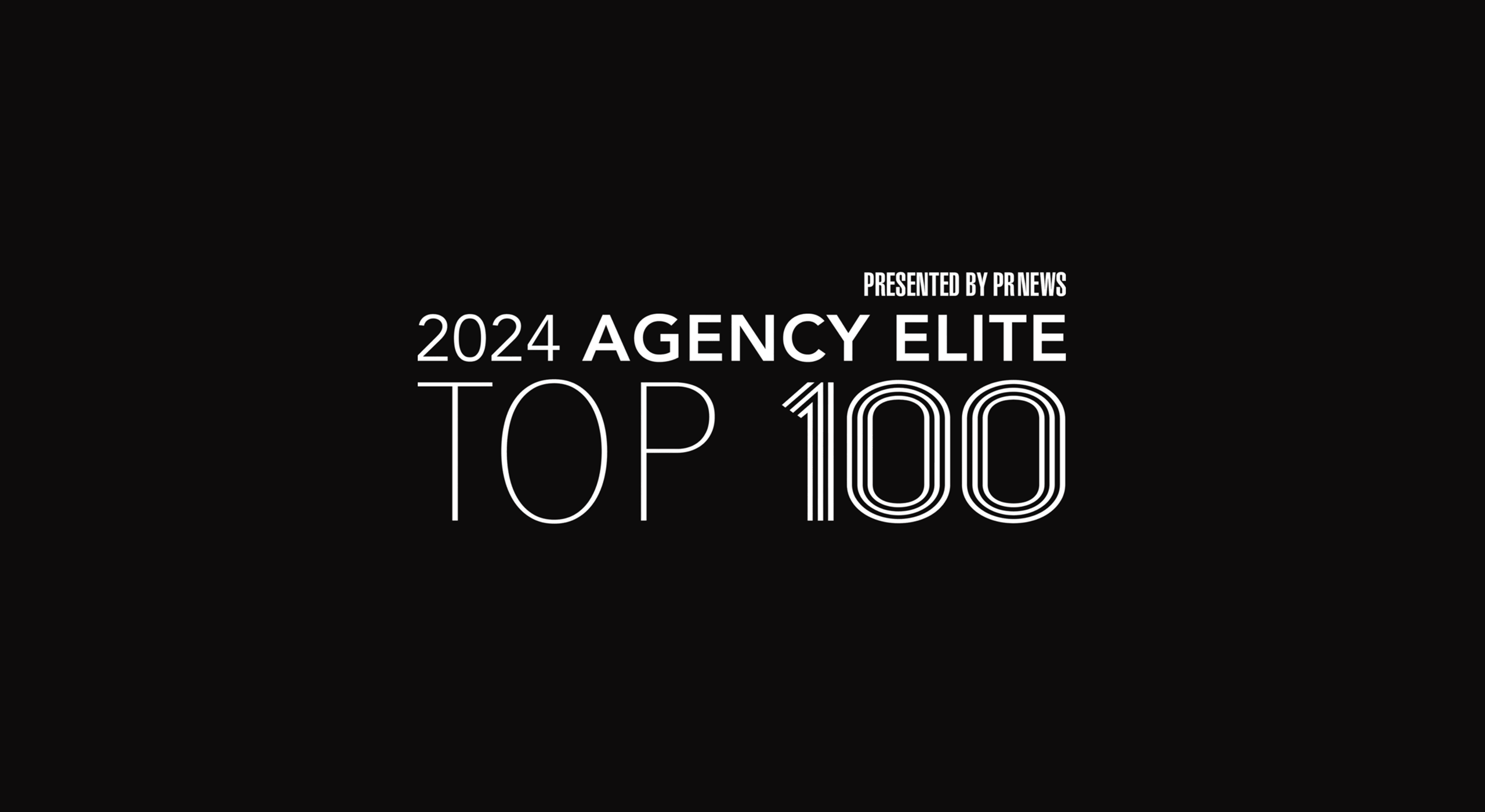
The 2024 PR Trends We’re Ready For
By: Brandon Chesnutt
No one can predict the future, so when it comes to 2024 PR trends, our team is sticking to what we know. There have already been countless predication pieces written and plenty of listicles featuring tools and platforms, and from my perspective, the core issues driving where the PR industry is headed represent so much more than a trendy tool or compelling stat.
The PR industry, much like many other sectors, continues to grapple with big issues that are as complex as they are disruptive. And that excitement, and instability, will impact how we advise and counsel for the months and years to come.
How we plan and inspire change for a new year always starts well before the new year begins.
Identity Managing Partner Andrea Trapani, Brand Strategy Director Lindsay Wyskowski and I spent five days in Nashville in late 2023 with communicators from all over the world for PRSA ICON, the Public Relations Society of America’s international conference.
Flagship conferences can often serve as a bellwether for change within a particular industry. Commercial real estate has ICSC Las Vegas every May. Technology has CES. 3D Printing has RAPID+TCT (an event managed by Identity client SME).
The content and topics covered at PRSA ICON in particular were reflective of what’s on the mind of today’s communicators–the exciting 2024 PR trends and nerve wracking challenges shaping an industry that is constantly shifting and evolving.
Global Events Elevate the Need for Effective Counsel
Communicators are often turned to by corporate leaders for counsel and a guiding hand as they try to navigate complex internal and external issues. It’s our job to determine how a company speaks to very human issues, while still maintaining a position of corporate governance. In other cases, we’re trying to inject humanity into a business, which can be a daunting task.
PRSA ICON took place just one week after the tragic terrorist attack in Israel, and the air was heavy. There was acknowledgment of the issue and empathy for the loss of life in Israel and Gaza.
At one point, a speaker asked a packed room of communicators, “How many of your companies have issued a statement about the attacks in Israel?” A few sporadic hands went up in the room.
The conversation–and overall temperature–in the room made it clear: in the era of global perma-crisis, PR and communications professionals are a necessary asset to help companies communicate about big, complex and emotional things.
Virtual, Hybrid, Remote and the Cultural Shifts in Motion
While there were plenty of sessions and panels on topics shaping the content, visibility and communications side of the industry, several sessions focused on the current state of operating within a PR team and how business factors like RTO are impacting overall organizational culture.
Gen Z was basically treated like a newly discovered species. In a session I attended on the future of PR leadership, the wants and needs of Gen Z seemed to confuse every other generation sitting in the room, including millennials. Everything from their office environment preferences to perceived work was dissected.
Near the end of the discussion, I felt emboldened to share a bit about of Identity’s choice to remain “remote first” in terms of operation and what we’ve felt as a result. I imagined plenty of pearl clutching, but we ran out of time before I could fire off a cannonball within the room.
Crisis Complexities Loom Large
For the first time ever, PRSA ICON coordinated a full-day bootcamp dedicated specifically to strategies and best practices for managing and mitigating crisis moments. The eight-hour program, led by Identity and several other crisis management practitioners from global brands and niche consultancies, presented a room packed with attendees various scenarios and stories about overcoming (and surviving) high-pressure crisis moments.
We know first hand crisis management is always a hot topic for industry pros, not just a 2024 PR trend. A great case study or moment when a brand, agency or organization pulls back the curtain to share the good, the base and the ugly of crisis and reputation management is timeless and can stand out among a sea of PR presentations. However, I was pleasantly surprised to see the 50-plus communicators who attended the bootcamp not only arrive a full day early at PRSA ICON to attend our session, but also stay locked in and engaged for eight hours in a standing-room only conference room.
During the crisis communications bootcamp, topics discussed ranged from managing iconic global news moments to “What if?” scenarios on X where posts attacking companies go hyper viral, leading to some entertaining banter among attendees on how to address the situation.
Outside of the bootcamp, there were also case studies presented during event programming that covered some of the more sensitive–and often recurring–challenges faced by communicators: tragic acts of violence in public places, corporate malfeasance, ethical issues and more.
What communicators need to know is that crisis management skills are like a muscle that constantly needs to be flexed. Hopefully, you’ll never need to use it. But if the time arises, you’re able to lift heavy.
AI Dominates the Conversation
There was a big Skynet-looking elephant in the room at PRSA ICON, and I don’t think this came as a surprise to… well… anyone. Artificial Intelligence (AI) was the hot-button issue at the conference, covering all sides of the opportunities, pitfalls and unknowns related to the technology. Even the closing keynote of the show was centered on the role of AI from a communications, training, education and technology perspective.
It was clear that practitioners of all backgrounds were interested in learning more about this disruptive technology. As presenters took to the stage to share their content, you could see how attendees reacted to specific AI talking points.
In some cases, we were stat-bombed with information about how AI was rapidly reshaping executive opinions about how communicators should produce information and work more efficiently (queue the shocked faces in the crowd). In other sessions, speakers talked about where AI isn’t quite delivering. When it was mentioned that AI wasn’t great for developing media releases or delivering targeted media pitches, you could hear collective chuckles… and a few sighs of relief.
As an agency professional, there was one clear takeaway that I found incredibly valuable (and kind of alarming) from Greg Matusky, founder and CEO of Gregory FCA, who poured energy into his presentation as he talked about how AI has “reinvigorated” his decades-long career. After talking about Gregory FCA’s early pioneering into AI and how “AI hallucinations” can deliver creative answers to never-before explored business issues, Greg threw a slide on the screen near the end of his presentation containing a simple question with two respondent groups:
Do you believe AI can notably improve PR’s ability to tell stories?
- 44% of agency professionals responded with yes.
- 71% of in-house professionals responded with yes.
From Greg’s perspective, in-house communicators and PR leads are moving much faster to adopt AI compared to their agency counterparts. As a result, agencies run the risk of becoming cut out of the process, essentially taking away from their most valuable offering: the ability to counsel at a high level on what’s new and emerging.
What’s Next for PR
With a full new year ahead, we will continue to watch these 2024 PR trends to see what evolution might be in store. Our industry runs on a unique mix of speed, facts, and thoughtfulness, and all of these elements are required to address the crisis moments, technology shifts, and breaking news we know are all ahead.
While these topics are fairly trendy for the moment, they have been part of the fabric of Identity and our approach to our work well beyond the PRSA ICON and even 2023. Along with our industry peers, we’ll be watching and ready to pounce on what’s next.



